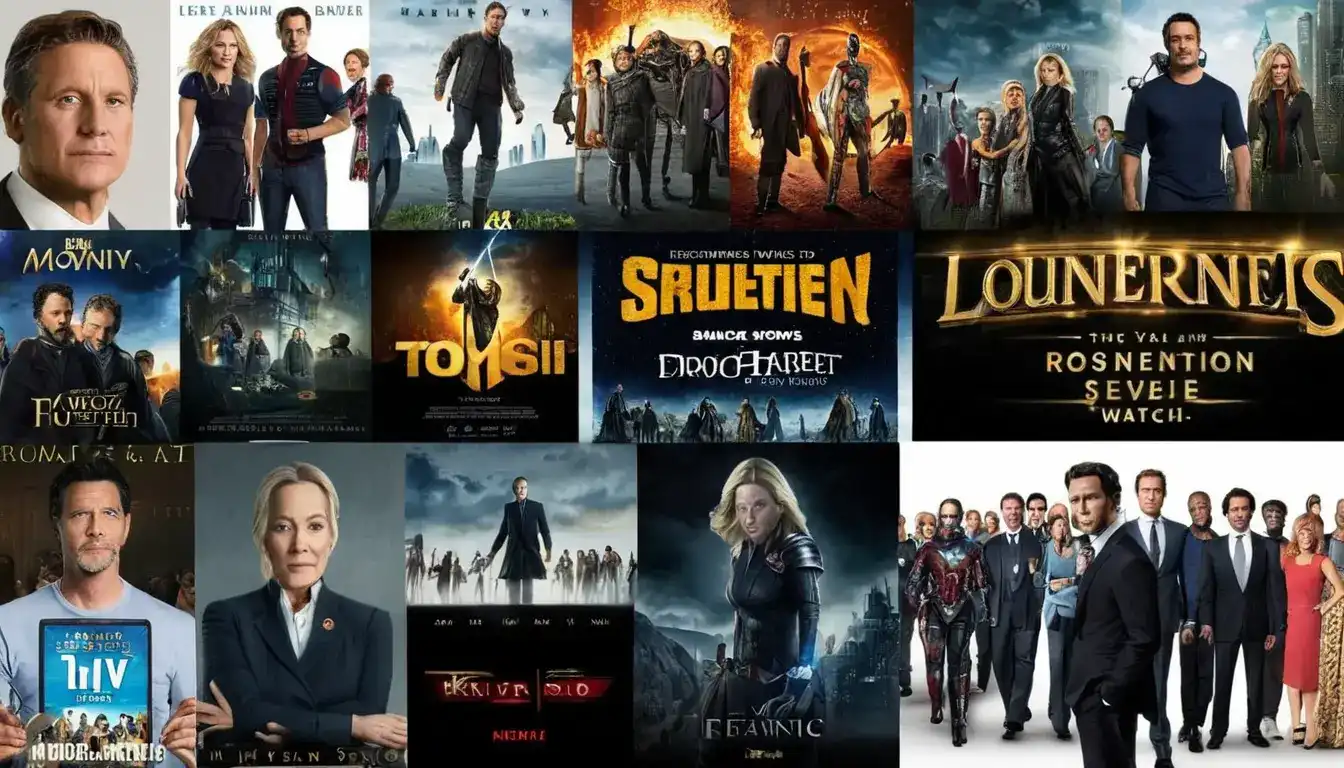Sharing Economy: Collaboration or Not?
Emily Willis

Photo: Sharing Economy: Collaboration or Not?
The Sharing Economy: A Tale of Two Realities – Collaboration or Commercialism?
The sharing economy, often heralded as a revolutionary force, has fundamentally reshaped how we access goods, services, and even skills. From booking a spare room on Airbnb to hailing a ride with Uber, or finding a local tasker on TaskRabbit, these platforms have interwoven themselves into the fabric of modern life. At its core, the sharing economy is defined as a peer-to-peer (P2P) economic model that facilitates the acquiring, providing, or sharing of access to goods and services, often through online platforms. This innovative model, also known as collaborative consumption, the gig economy, or the access economy, taps into underutilized assets and human capital, promising efficiency, sustainability, and community building.
However, beneath the veneer of collaborative consumption, a critical question arises: is the sharing economy truly about altruistic collaboration, or has it evolved into a sophisticated form of commercialism, driven by profit and individual gain? This article delves into this dichotomy, exploring the initial promise of a collaborative future versus the transactional realities that often define the modern sharing economy. We will examine its multifaceted impacts, benefits, challenges, and the delicate balance required for its sustainable growth.
The Vision of Collaboration: A Shared Future
The initial appeal of the sharing economy was deeply rooted in the concept of collaboration and community. Imagine a world where resources are optimized, waste is minimized, and individuals connect to help each other. This vision aligns with several key benefits:
- Environmental Sustainability: By promoting the sharing of existing resources, the sharing economy reduces the need for new production and consumption, leading to less waste, lower emissions, and a smaller environmental footprint. For instance, car-sharing services like Zipcar can reduce the number of cars on the road, contributing to lower emissions and decreased air pollution.
- Resource Optimization: The sharing economy allows individuals and groups to monetize underutilized assets, turning idle resources like spare bedrooms or parked cars into income-generating opportunities. This efficient use of existing assets enhances overall resource utilization and reduces waste.
- Cost Savings and Accessibility: For consumers, the sharing economy often translates to lower prices and greater flexibility, providing access to goods and services that might otherwise be unaffordable or inaccessible. Airbnb, for example, has been reported to offer rates significantly cheaper than traditional hotels.
- Community Building and Trust: Many early proponents envisioned platforms fostering stronger community ties, where individuals interact directly and build trust through shared experiences. Reviews and ratings systems on platforms are designed to build this trust and transparency.
- New Economic Opportunities: The sharing economy has created new avenues for individuals to generate additional income by monetizing their skills, time, or assets, offering flexibility and independence. This can be a lifeline for those seeking supplemental income or flexible work arrangements.
This collaborative ideal suggests a shift from a purely ownership-based society to one focused on access, where the collective good is prioritized.
The Reality of Commercialism: Transactional Nature and Challenges
While the collaborative vision remains appealing, the rapid growth and commercialization of the sharing economy have brought forth a more transactional reality. Many platforms, while facilitating peer-to-peer interactions, operate as large businesses with significant profit motives. This shift has led to several criticisms and challenges:
- The "Gig Economy" vs. True Sharing: The term "sharing economy" is often used interchangeably with the "gig economy," where individuals perform short-term, flexible tasks or services for payment. Critics argue that many platforms, particularly in ride-sharing and food delivery, lean heavily towards a transactional "gig" model rather than genuine sharing or community building, often without providing traditional employee benefits or job security.
- Worker Rights and Exploitation: A significant concern revolves around the classification of workers as independent contractors rather than employees. This often means gig workers miss out on essential benefits like insurance, paid time off, and minimum wage protections. This lack of employee protection can lead to job insecurity and unfair treatment.
- Impact on Traditional Industries: The rise of sharing economy platforms has profoundly disrupted traditional industries such as hospitality and transportation. While this fosters innovation and competition, it can also lead to the closure of traditional businesses and job losses in established sectors.
- Regulatory Challenges and "Gray Zones": The rapid evolution of the sharing economy has often outpaced regulatory frameworks, creating "gray zones" where existing laws may not fully apply. This can lead to issues with taxation, consumer protection, and public safety. Governments are grappling with how to regulate these new models to ensure fair competition and protect consumers without stifling innovation.
- Trust and Safety Concerns: While platforms implement review systems to build trust, concerns persist regarding user safety, privacy, and the potential for fraudulent activities. Ensuring secure data handling and robust identity verification are crucial for maintaining user trust.
- Exacerbating Inequality: Some argue that the sharing economy can exacerbate inequality by primarily benefiting those who already own assets or have the means to participate as service providers.
These challenges highlight the tension between the idealistic vision of a collaborative economy and the commercial realities driven by large platform operators.
Key Players and Their Dual Nature
Examining prominent sharing economy platforms reveals this dual nature:
- Airbnb: Revolutionized accommodation by allowing homeowners to rent out spare rooms or entire properties. While it enables individuals to generate income from underutilized assets and offers travelers cost-effective alternatives, it has also faced criticism for contributing to rising rents and impacting local housing markets in some areas, as well as disrupting traditional hotel industries.
- Uber/Lyft: Pioneered ride-sharing, offering convenient and often cheaper transportation options. However, these platforms have been at the forefront of debates surrounding gig worker rights, fair wages, and the impact on the traditional taxi industry.
- TaskRabbit: Connects individuals needing help with various tasks (e.g., moving, cleaning, handyman services) with local "taskers". This platform exemplifies the gig economy, providing flexible work opportunities but also raising questions about worker benefits and stability.
- Zipcar: A car-sharing service that allows members to rent vehicles by the hour or day, reducing the need for individual car ownership. This model aligns more closely with the collaborative ideal of resource optimization and environmental benefits.
- Peer-to-Peer Lending (e.g., Lending Club): Facilitates direct lending between individuals, often at more competitive rates than traditional banks. This model fosters financial collaboration but also carries inherent risks for both lenders and borrowers.
- Co-Working Spaces: Provide shared workspaces for freelancers and entrepreneurs, promoting collaboration and community among professionals.
These examples underscore that while the underlying concept of sharing remains, the operational models and economic incentives vary, leading to different degrees of "collaboration" versus "commercialism."
Navigating the Landscape: Tips for a Balanced Approach
For the sharing economy to truly flourish in a way that benefits all stakeholders, a balanced approach is essential.
For Consumers:
- Read Reviews and Understand Policies: Before engaging with any platform, thoroughly review user feedback and understand the terms of service, including cancellation policies, dispute resolution, and insurance coverage.
- Prioritize Safety and Trust: Utilize platforms with robust identity verification and safety features. Be mindful of personal information shared and report any suspicious activity.
- Consider the Broader Impact: Be aware of how your choices might impact local communities and traditional industries. Support platforms that demonstrate a commitment to fair labor practices and sustainability.
For Service Providers:
- Understand Your Rights and Responsibilities: Research the legal and tax implications of working as an independent contractor in your region.
- Prioritize Safety: Take necessary precautions when interacting with users and ensure your services or assets meet safety standards.
- Build a Strong Reputation: Actively seek positive reviews and maintain high service quality to build trust and attract more opportunities.
For Policymakers and Platforms:
- Develop Adaptive Regulatory Frameworks: Governments must create flexible and responsive regulations that address the unique challenges of the sharing economy without stifling innovation. This includes clarifying worker classification, ensuring fair taxation, and establishing consumer protection standards.
- Foster Trust and Transparency: Platforms should invest in advanced identity verification, robust dispute resolution mechanisms, and transparent data handling practices to build and maintain user trust.
- Promote Ethical Practices: Encourage and incentivize fair labor practices, environmental responsibility, and community engagement among platform operators and users.
- Collaborate for Solutions: Dialogue between governments, platforms, and stakeholders is crucial to developing effective and equitable solutions for the future of the sharing economy.
The Future of Sharing: Towards a Hybrid Model?
The future of the sharing economy likely lies in a hybrid model that seeks to balance the benefits of access and efficiency with the imperative of social responsibility and fair practice. As technology continues to evolve
Latest ✨
View AllDon't let taxes drain your business. Discover smart tax planning strategies to maximize savings, boost profitability, and fuel your growth.
Emily Willis
Discover the true ROI of education. It's more than just money – unlock higher earnings, better jobs, personal growth, and a richer life.
Emily Willis
Master the art of handling complaints effectively. Learn the psychology, actionable steps, and how to turn feedback into opportunities for growth and stronger r...
Emily Willis
Unpack the immense power of central banks and how they're held accountable for shaping the economy and your financial life.
Emily Willis
Business
View All
June 8, 2025
7 Growth Hacks for Startup SuccessUnlock explosive growth! Discover 7 powerful growth hacks to fuel your startup's success, acquire users rapidly, and thrive with limited resources.
Emily Willis

June 8, 2025
Entrepreneurial Journey to SuccessDemystify the entrepreneurial journey. This guide offers actionable strategies to transform ideas into thriving businesses, navigate challenges, and achieve las...
Emily Willis

June 8, 2025
CRO Secrets: Convert More VisitorsUnlock your website's potential! Learn CRO secrets to convert more visitors into customers, boost growth, and maximize existing traffic.
Emily Willis
Economy
View AllUncover the invisible market forces shaping prices & production. Learn how supply & demand drive our economy—essential for consumers & businesses.
Read Morechallenges and opportunities presented by economic uncertainty and explores strategies that governments and businesses can implement to mitigate risks, ensure stability, and pave the way for future success.
Read MoreUnlock public policy economics! Discover why governments intervene to fix market failures, shaping everything from your coffee to your job.
Read MoreEntertainment
View All
August 4, 2024
Exploring Virtual Reality (VR) in Entertainment: Future Applications and DevelopmentsVirtual Reality (VR) technology is revolutionizing the entertainment industry by providing immersive and interactive experiences that transform audience interaction with content. VR creates simulated environments that allow users to engage with virtual worlds, characters, and narratives in ways that traditional media cannot.
Emily Willis

August 5, 2024
Music's Evolving Landscape: Technology, Social Media, and Global TrendsThe music industry has undergone significant changes due to technological advancements, social media, and a growing global audience. The shift from analog to digital formats, the rise of streaming services, and the impact of social media on artist-fan relationships are explored.
Emily Willis

August 4, 2024
Recommended Movies and TV Series to Watch This Yearlist of recommended movies and TV series to watch this year. The movies include "Dune: Part Two," "Spider-Man: No Way Home," "The French Dispatch," "No Time to Die," and "Encanto." The TV series include "Stranger Things: Season 4," "The Mandalorian: Season 3," "The Witcher: Season 2," "Ted Lasso: Season 3," and "Loki: Season 2." Each entry includes reasons to watch, such as stellar cast, visually stunning cinematography, engaging plot, and character development.
Emily Willis
Health
View Allour minds are often overwhelmed with information and stimuli, leading to stress and anxiety. Mindfulness and meditation offer tools to cultivate inner peace and well-being. Mindfulness involves being present in the moment without judgment, while meditation involves focusing attention on an object or thought.
Emily Willis
King Charles's health updates: prostate & cancer. See how the Royal Family's transparency impacts the monarchy and boosts public health awareness.
Emily Willis
Regular physical activity is crucial for maintaining long-term health and well-being. It has numerous benefits, including improving cardiovascular health, aiding in weight management, enhancing mental health, strengthening bones, boosting immune function, and promoting longevity.
Emily Willis
Trending 🔥
View All
1
2
3
4
5
6
7
8
9
10
Lifestyle




Sports
View AllAugust 5, 2024
Sports for Social Good: Promoting Diversity, Inclusion, and Community Engagement
Read MoreAugust 4, 2024
Sports Technology Innovation: Revolutionizing Training and Performance Analysis
Read MoreAugust 4, 2024
Benefits of Cross Training for Athletes: Improves Performance and Prevents Injuries
Read MoreTechnology
View All
August 4, 2024
The Rise of Blockchain Technology: Applications Beyond Cryptocurrency
Blockchain technology, initially associated with cryptocurrencies, has expanded to have diverse applications across industries. It is a decentralized digital ledger that ensures secure, transparent, and immutable transactions. Beyond cryptocurrency, blockchain has been applied to supply chain management, healthcare, voting systems, smart contracts, digital identity verification, real estate transactions, and supply chain finance. Future trends include enhancing interoperability, addressing scalability issues, and exploring regulatory frameworks. Overall, blockchain technology has the potential to revolutionize various sectors by enhancing efficiency, security, and trust in operations.

August 5, 2024
Types of Cloud Computing Services Available
Cloud computing has become essential for modern businesses, offering services that streamline processes, reduce costs, and increase flexibility. Understanding the types of cloud computing services available, such as Infrastructure as a Service (IaaS), Platform as a Service (PaaS), and Software as a Service (SaaS), can help businesses make informed decisions.

August 4, 2024
The Role of 5G Technology in Revolutionizing Communication
The introduction of 5G technology is set to revolutionize communication by offering faster speeds, lower latency, and increased capacity for connecting devices. This technology will impact various sectors such as healthcare, transportation, and entertainment. 5G enhances communication through faster speeds, lower latency, and increased capacity, enabling applications like remote surgery, autonomous vehicles, and high-quality streaming.

August 4, 2024
All-Time High Cybersecurity Breach: How to Safeguard Your Company and Personal Information
threat of cybersecurity breaches in today's digital age, highlighting factors contributing to the rise in cyberattacks such as increased reliance on technology, evolving threats, remote work, and profit motive for cybercriminals.

















